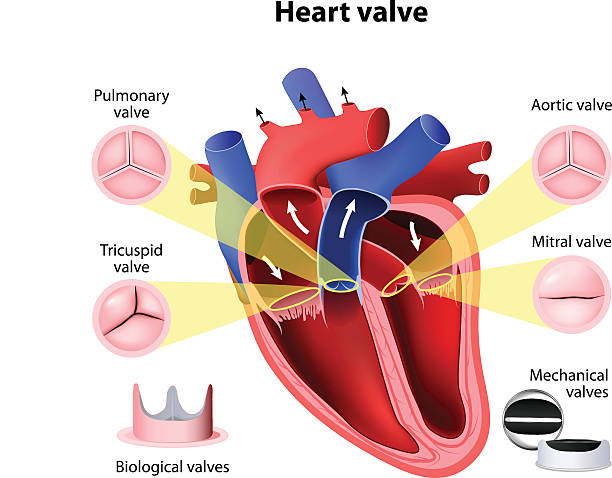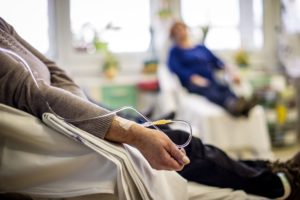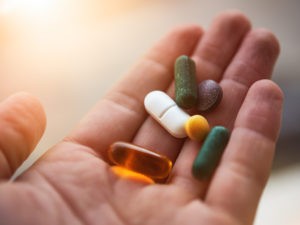
Diagnosed with Cancer? Your two greatest challenges are understanding cancer and understanding possible side effects from chemo and radiation. Knowledge is Power!
Learn about conventional, complementary, and integrative therapies.
Dealing with treatment side effects? Learn about evidence-based therapies to alleviate your symptoms.
Click the orange button to the right to learn more.
- You are here:
- Home »
- Blog »
- side effects ID and prevention »
- Arterial Stiffness Therapy
Arterial Stiffness Therapy

I actively work to prevent arterial stiffness. That may sound like an odd opening sentence for a blog post but let me explain.
First of all, I am a long-term cancer survivor struggling with a host of long-term side effects. I was diagnosed with chemotherapy-induced cardiomyopathy in late 2010. I developed chronic atrial fibrillation (Afib) soon after.
On top of that, Marfan’s Syndrome (MFS) runs in my family. I have never been formally diagnosed though I have to assume that my heart health (artery stiffness) has negatively affected by MFS.
Oh, one more thing. My experience with the world of conventional oncology did not go well. In effect, I spent years and paid 000’s of dollars all to develop short, long-term and late stage side effects. After 3.5 years of aggressive therapies my oncologist told me “there is nothing more we can do for you.” Yikes!
As a result, I work hard researching evidence-based non-conventional, non-toxic therapies to treat my health. Think acupuncture, nutrition, exercise, nutritional supplementation, etc, etc.
This blog post’s focus is arterial stiffness.
What are some nutritional supplements shown to reduce arterial stiffness?
Some nutritional supplements that have shown promise in reducing arterial stiffness include:
- Omega-3 fatty acids: Found in fish oil supplements, omega-3 fatty acids have anti-inflammatory properties that may help reduce arterial stiffness and improve overall heart health.
- Vitamin D: Adequate levels of vitamin D have been associated with lower arterial stiffness. Sunlight exposure is the primary source of vitamin D, but supplements can be beneficial, especially in regions with limited sunlight.
- Coenzyme Q10 (CoQ10): CoQ10 is an antioxidant that plays a role in energy production within cells. Studies have suggested that CoQ10 supplementation may improve arterial stiffness, particularly in individuals with existing cardiovascular conditions.
- L-arginine: This amino acid is a precursor to nitric oxide, a molecule that helps relax blood vessels and improve blood flow. Some research suggests that L-arginine supplementation may reduce arterial stiffness, particularly in individuals with hypertension.
- Pycnogenol: This extract from the bark of the French maritime pine tree contains powerful antioxidants known as proanthocyanidins. Pycnogenol has been studied for its potential to improve endothelial function and reduce arterial stiffness.
- Magnesium: Magnesium plays a vital role in regulating blood pressure and maintaining vascular health. Some studies have suggested that magnesium supplementation may help reduce arterial stiffness, particularly in individuals with magnesium deficiency.
- Vitamin K2: Vitamin K2 is involved in regulating calcium deposition in the arteries, which can help prevent arterial stiffness and calcification. Supplementation with vitamin K2 has shown promise in improving arterial health.
In addition the nutritional supplements listed above, I also supplement with many of the polyphenols listed in the article below.
Do you have MFS? Do you have an aortic aneurysm? Is your aortic root growing? Please don’t misunderstand me. I am not a medical professional. I’m simply trying to learn as much as I can about my heart health.
Let me know- David.PeopleBeatingCancer@gmail.com
David Emerson
- Cancer Survivor
- Cancer Coach
- Director PeopleBeatingCancer
Heart Failure Signs and Symptoms
“If you have more than one or more symptoms of heart failure, even if you haven’t been diagnosed with any heart problems, report them to your health care professional and ask for an evaluation of your heart…”
Exercise may reduce artery stiffening associated with heart failure
“New research suggests exercise may prevent or lessen artery stiffening associated with heart failure by limiting the buildup of unsafe chemicals around the heart. The first-of-its-kind study is published ahead of print in the Journal of Applied Physiology.
Stiffening in large arteries throughout the body is common in people with heart failure, but less is known regarding this process in the heart’s blood vessels. Arterial stiffness stems from a number of factors, including reduced elastin (an elastic-like protein in connective tissues) and the buildup of a harmful compound called advanced glycation end products (AGE) that forms when protein or fat combines with sugar in the bloodstream.
Previous research suggests that fat tissue surrounding the heart’s arteries (perivascular adipose tissue, or PVAT) plays a role in arterial stiffness-;even in people without heart failure-;because it secretes AGE. Reducing this stiffness can help preserve blood flow to the heart in people with heart failure.
Researchers studied three groups of Yucatan miniature swine with heart failure:
- One group was sedentary.
- One group participated in continuous exercise training.
- One group participated in interval exercise training.
Exercise training consisted of treadmill running three days a week for 17 weeks. The continuous group exercised for 45 minutes without stopping plus five-minute warm-up and cool-down sessions. The interval group alternated between three- and five-minute training periods of different exercise intensity in addition to the warm-up and cool-down.
Both exercise groups maintained artery elasticity and had lower levels of stiffness than the sedentary group. In addition, the PVAT showed less inflammation and released less AGE in the exercise groups.
These results “show the efficacy of chronic exercise training as a therapeutic option for treating coronary vascular dysfunction in [heart failure], using an intensity tolerable to heart failure patients,” the researchers wrote. Learning more about “the potential of AGE inhibition as a therapeutic strategy to combat arterial stiffness and dysfunction in heart failure is warranted,” the research team said.
Ouyang, A. et al. (2019) Chronic exercise training prevents coronary artery stiffening in aortic-banded miniswine: Role of perivascular adipose-derived advanced glycation end products. Journal of Applied Physiology. doi.org/10.1152/japplphysiol.00146.2019.
Dietary Polyphenols Targeting Arterial Stiffness: Interplay of Contributing Mechanisms and Gut Microbiome-Related Metabolism
“Recent studies point to significant interference of dietary polyphenols with mechanisms involved in the pathophysiology and progression of arterial stiffness. This review summarizes data from epidemiological and interventional studies on the effect of polyphenols on vascular stiffness as an illustration of current research and addresses possible etiological factors targeted by polyphenols, including pathways of vascular functionality, oxidative status, inflammation, glycation, and autophagy…
They are found in several foods: the dietary polyphenols most investigated for their vascular properties include:
- flavonoids (flavanols) and procyanidins in chocolate (Theobroma cacao),
- catechins, such as epigallocatechin gallate (EGCG) in green tea (Camellia sinensis),
- isoflavones in soy (Glycine max),
- curcumin from turmeric (Curcuma longa),
- oleuropein and hydroxytyrosol (HT) in olives (Olea europaea),
- anthocyanins in berries,
- resveratrol and other stilbenes in grapes and wine (Vitis vinifera) [30].
Main polyphenol classes, major compounds in each class, and important dietary sources are summarized in Table 1 [31]…”



